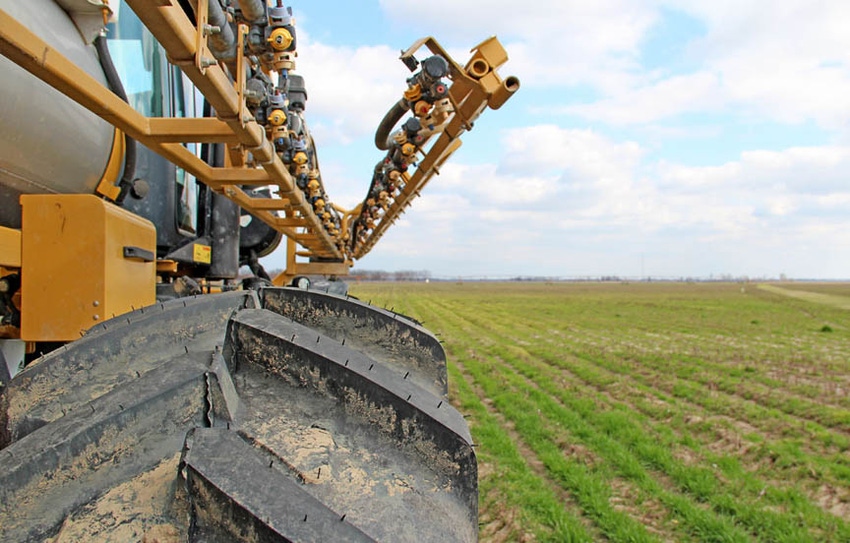February 10, 2014

Big Data is terra incognita for agriculture; a giant blank on the map, but for whatever the blank spot holds — the good and the bad — U.S. agriculture is charging right toward it.
The promise of new technology has always been a double-edged sword: Stand still and get left behind, move too fast and get hammered. There is seldom a reasonable medium beyond banal “proceed with caution” warnings.
The digital age has allowed GPS and precision agriculture to transform farming capabilities and hyperbole doesn’t do justice to the extent of the technological leap. But nobody, including farmers, gets to opt out of the unintended consequences of digital technology. Over the last several years, at a staccato pace, news headlines have been splashed with Wikileaks, Edward Snowden, NSA data gathering, Target security holes, EPA farmer info releases, and too many others. The sheer volume of data gaps and potential slip-ups is dizzying and begs the question: Is all digital data destined for a breach?
Blog archive
Benchmark GM crop contamination case a bitter tale
How to create an epic environmental disaster
And for agriculture producers, a crack in the data dike wouldn’t be a matter of a compromised credit card, eBay password, or Facebook information — those losses carry negligible consequences compared with a government audit, EPA investigation, crop insurance adjustments, environmental protests, agroterror threats, or foreign theft. (If Chinese ag spies will crawl through a corn field to steal seed, they’ll surely try to hijack the Big Data train.)
Farmers have shared various forms of crop data with agribusiness for several years, but the rate and specificity is taking a significant jump. From Daniel Charles at NPR: “Starting this year, farmers across the Midwest can sign up for a service that lets big agribusiness collect data from their farms, minute by minute, as they plant and harvest their crops. Monsanto and John Deere are offering competing versions of this service. Both are promising to mine that data for tips that will put more money in farmers’ pockets.” The mass of accumulated data will allow agribusiness companies to offer an invaluable, tailor-made regimen of seed, soil and weather data to a farmer.
Who owns ag data?
The data is market gold that came from a farmer’s field, but was mined by agribusiness riding shotgun in the tractor cab. Who owns it? Blake Hurst wades in on property rights in The American: “… the individual farmer’s data has considerably more value than the average consumer’s data. Many farms are fairly large businesses, spending hundreds of thousands on fertilizer and seed and producing millions of dollars of crops. It’s not difficult to imagine a smart phone ad arriving within seconds of a farmer encountering weed or insect damage while he’s harvesting his crop. Farmers’ information is valuable to the companies sponsoring ads, so farmers should be compensated when their data is sold. Farmers need to protect their data and make sure they bargain wisely as they share data with suppliers and companies who desire access to their information.”
For more from Hurst, see Big Farms Are About to Get Bigger
There’s no Faustian bargain between agriculture and Big Data, but it should be noted that proprietary data rules are yet to be written and the law of unintended consequences may play out down the road in high court in Big Data’s version of Bowman v. Monsanto or other touchstone cases. Bob Stallman, president of American Farm Bureau Federation, from a Jan. 31 AFBF release: "Proprietary data collected from individual farms is valuable and should remain the property of the farmer. As innovation and technology using this data expands to provide farmers new management tools, protecting the privacy of this data is paramount."
A buyer-beware change is around the bend for American farmers — but beware of what? Hurst wraps the issue very well: “Farmer’s personal relationship to place, one of the salient facts that distinguish agriculture, is about to change.”
Follow me on Twitter: @CBennett71 or email me: [email protected]
Blog archive
Farmer dragged into harvester escapes with life
Who killed the Big Lebowski of Belgium?
Benchmark GM crop contamination case a bitter tale
How to create an epic environmental disaster
Big Ag goes organic (Come again?)
Farm’s Nazi past still fresh for slave workers
Farmer privacy breach brings suit against EPA
James Bond once worked for the EPA
About the Author(s)
You May Also Like






